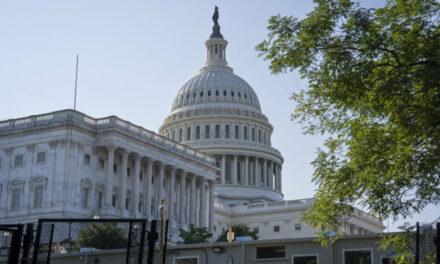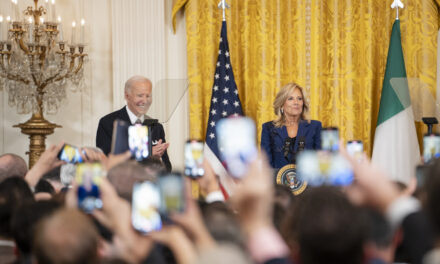We support our Publishers and Content Creators. You can view this story on their website by CLICKING HERE.
The political gap between women and men has widened since 2020, according to some recent polls.
Given that a slight majority of voters are women, an uptick in voter turnout along gender lines could swing the election, some analysts say.
However, some point to indications that the gap may be decreasing in the final days before the election. Others say identity factors such as education and race may play a bigger role in shaping voters’ intentions.
Some analysts say the gap could reach historic proportions this election.
“In this one, the surprise would be if it doesn’t set a record, and that would be anything, I believe, over 20 percent,” Lee Miringoff of the Marist Poll told The Epoch Times.
One reason for the widening gap could be higher voter engagement in this election, which would magnify men’s and women’s existing gender preferences. As Harris seeks to turn out more and more women and Trump attracts more and more men, the gap widens, assuming one candidate does better than the other, Miringoff explained.
“There are two things that are being considered. One is preferences, and that creates the gap,” Miringoff said. “The other is the turnout, and whether one group, one gender, actually becomes a bigger part of the election.”
Female voters historically outnumber male voters by 2 to 4 percentage points in national elections, according to Miringoff. A surge in the percentage of women taking part in the election could have a dramatic effect.
“If women ended up [voting] at 55 percent and men at 45, that would be a big deal,” he said.
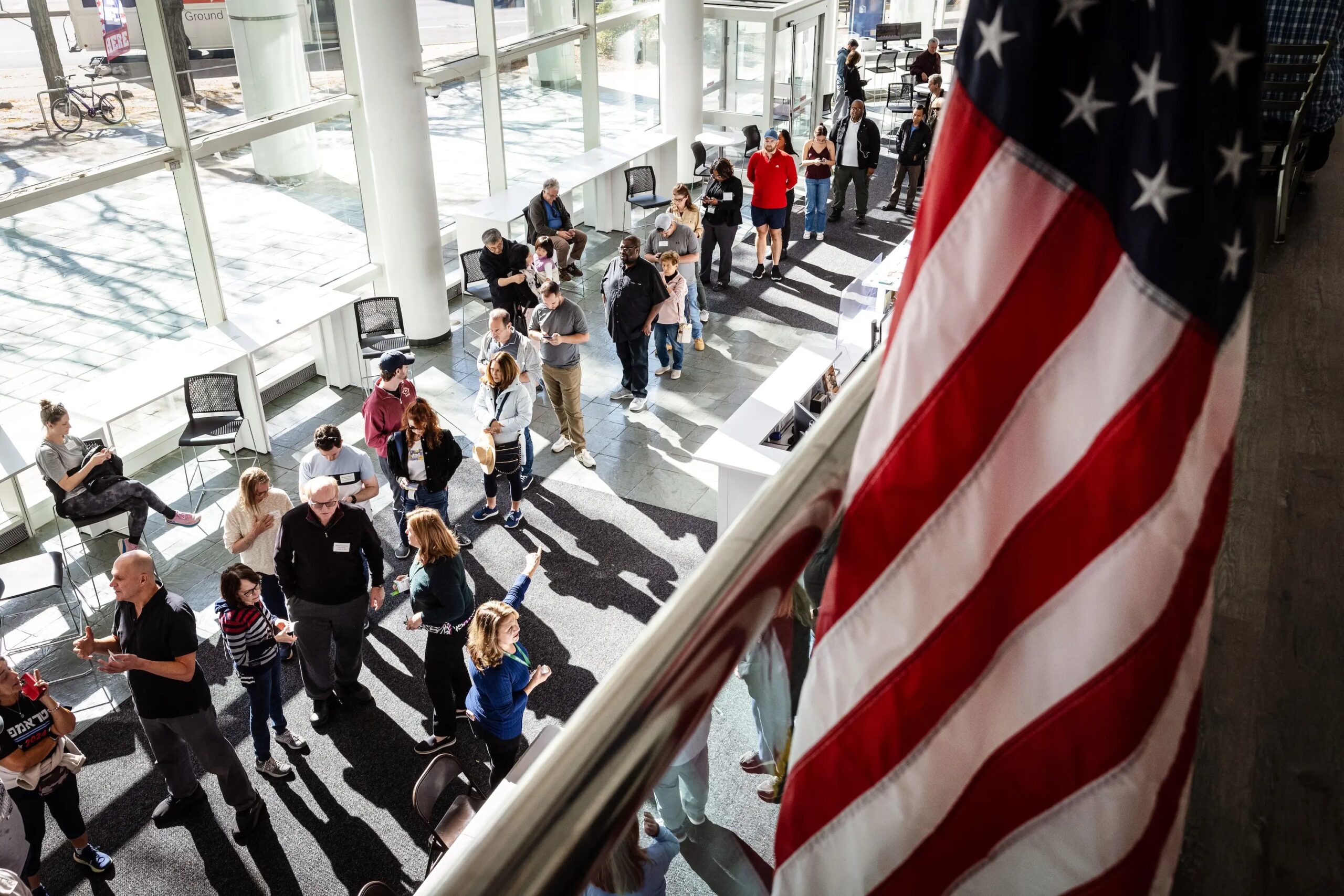
Voters line up to cast their ballots on the first day of early voting at the Stamford Government Center in Stamford, Conn., on Oct. 21, 2024. John Moore/Getty Images
However, the data are from only the six states providing gender information on voters—Colorado, Georgia, Idaho, Michigan, North Carolina, and Virginia—and account for less than a quarter of the 62.9 million early and absentee votes cast as of Oct. 31.
Gap May Be Narrowing
Both campaigns have taken steps to close their gender disadvantage, with Trump making an appeal to women and Harris to men. Both have based their arguments on the idea that women should be safe.
“I am your protector,” Trump said, addressing women, at a Sept. 23 rally in Indiana, Pennsylvania. “As president, I have to be your protector.”
Lara Trump, co-chair of the Republican National Committee and daughter-in-law of the former president, has hosted women’s events in swing states.
The safety message has gained traction with some women for whom border security is a defining issue.
“What’s important for me is the border,” Katya LaGrow, 45, of Michigan, told The Epoch Times. “I think that a lot of that keeps me up, and I’m worrying about what is coming on to American soil.”
Karina Thompson, 28, a mother of three from Traverse City, Michigan, is most concerned about her family’s future.
“We believe if Kamala gets in office, that it’s not going to be good, even for our kids,” she told The Epoch Times, mentioning international affairs in particular.

Republican presidential candidate former President Donald Trump speaks during a campaign rally in Indiana, Pa., on Sept. 23, 2024. Jim Watson/AFP via Getty Images
Harris has attempted to close the gap with male voters through appeals from former President Barack Obama and former first lady Michelle Obama.
Their arguments were based on the notion that sexism underlies the lack of support for Harris among men and partly on the notion that women need to be protected.
Barack Obama, theorizing that the lack of support for Harris among black men was an indication of sexism, called for men to embrace the idea of voting for a woman.
“I’m speaking to men directly—part of it makes me think that, well, you just aren’t feeling the idea of having a woman as president,” he said in televised remarks on Oct. 10.
“Well, how can that be? Because the women in our lives have been getting our backs this entire time.”
She first questioned why black men would support Trump given his previous record, which she said included “cracking down on protesters marching to protect their sons from being shot because of the color of their skin.”
The former first lady turned to the topic of abortion.
“I want the men in the arena to bear with me on this, because there’s more at stake than just protecting a woman’s choice to give birth, and sadly, we as women and girls have not been socialized to talk openly about our reproductive health,” she said.
“Your niece could be the one miscarrying in her bathtub after a hospital turned her away.
“In the worst-case scenario, you might be the one holding flowers at the funeral. You might be the one left to raise your children alone.”
Samuel Umuma, 58, of Flint, Michigan, told The Epoch Times that Harris’s commitment to protecting access to abortion was important to him for the sake of his family members, saying that he was motivated to vote for Harris for the “good of the whole.”
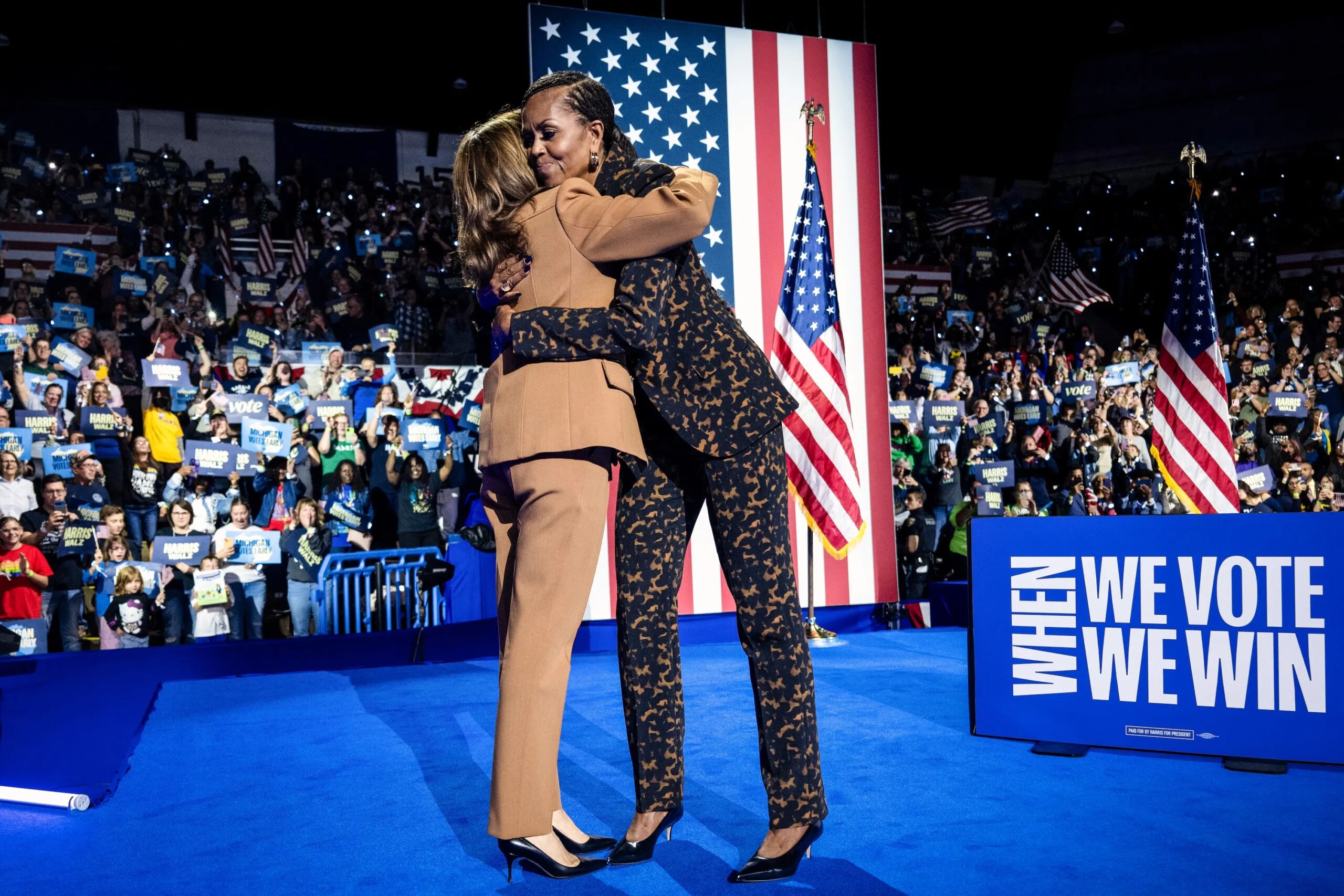
Democratic presidential candidate Vice President Kamala Harris and former First Lady Michelle Obama embrace as they campaign together in Kalamazoo, Mich., on Oct. 26, 2024. Brendan Smialowski/AFP via Getty Images
Dave Keener, 62, of Hastings, Michigan, echoed that thought.
“I just think the Republicans are more for their group and their plan. Democrats try to shoot for more of society,” Keener told The Epoch Times.
Harris’s appeal based on character qualities was effective for John Sherman, 77, of Elkhart, Indiana.
Sherman, who describes himself as a lifelong Republican-turned-independent, said his decision to vote for Harris does not depend on a single issue.
“In my view, she’s a much better person in terms of character, integrity, the things that are most important to me,” Sherman told The Epoch Times.
Recent polling suggests that both campaigns have narrowed their gender disadvantages.
Harris leads among women in Pennsylvania by 2.6 points and Trump has an identical advantage among men, in an Oct. 22 poll from Susquehanna Polling & Research, according to the poll’s author, Jim Lee.
“We’re not seeing a big gender gap in these late surveys,” Lee told The Epoch Times.
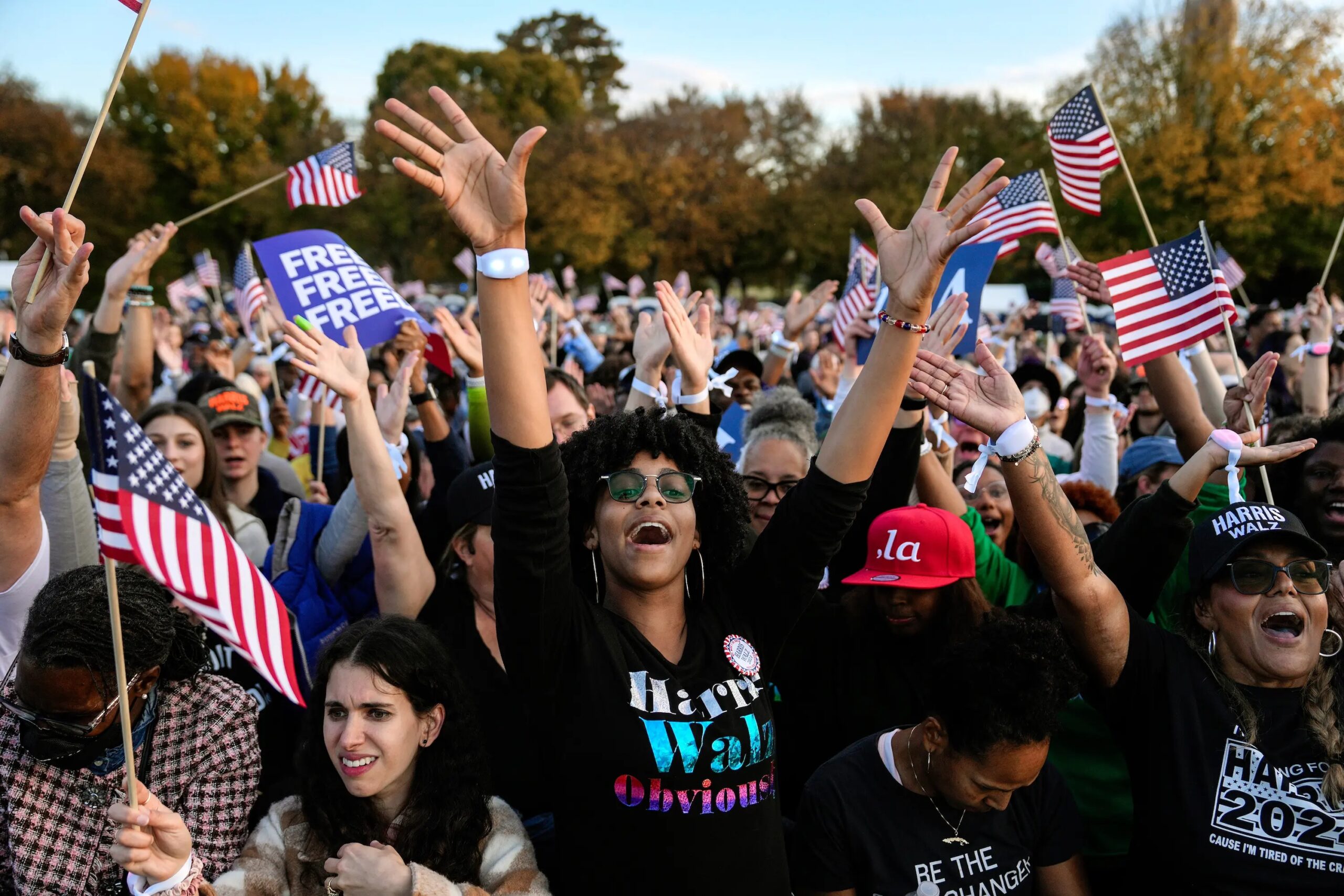
Supporters wait for the start of a campaign rally for Vice President Kamala Harris on the Ellipse in Washington on Oct. 29, 2024. Kent Nishimura/Getty Images
Other Demographics Shifting
Experts caution against focusing too much on a single demographic, as a voter’s background may include several sociological factors.
“I think the point that a lot of the media is missing is the education gap,” pollster Neil Newhouse told The Epoch Times.
Race is another variable. Democrats have traditionally won a large majority of black, Hispanic, and Asian voters. However, Trump has eroded the Democratic advantage in those demographics.
In 2008, Barack Obama received 95 percent of the black male vote, while Biden received 79 percent of that vote in 2020, according to exit polls.

 Conservative
Conservative  Search
Search Trending
Trending Current News
Current News 
